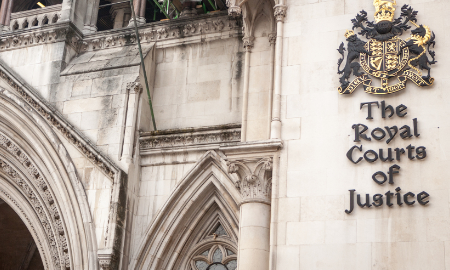Sign up for our free daily newsletter
YOUR PRIVACY - PLEASE READ CAREFULLY DATA PROTECTION STATEMENT
Below we explain how we will communicate with you. We set out how we use your data in our Privacy Policy.
Global City Media, and its associated brands will use the lawful basis of legitimate interests to use
the
contact details you have supplied to contact you regarding our publications, events, training,
reader
research, and other relevant information. We will always give you the option to opt out of our
marketing.
By clicking submit, you confirm that you understand and accept the Terms & Conditions and Privacy Policy
Whilst the circumstances in the recent High Court decision in Contax Partners Inc BVI v Kuwait Finance House (KFH-Kuwait) & Ors are unique, this case has important wider implications. It raises a question of whether the English civil court procedure for enforcement of foreign arbitral awards is sufficiently robust to protect an innocent party against fraud.
What happened
Mr Justice Butcher made an order on 9 August 2023 entering judgment against the defendants in the terms of the purported Kuwaiti arbitration award dated 28 November 2022 (the “Award”). Due to the lack of challenge from the defendants, the judgment creditor obtained interim third-party debt orders (“TPDOs”) in October 2023 freezing the defendants’ bank accounts. On 30 January 2024, Mr Justice Butcher heard the defendant’s application to set aside the August order challenging service and, most uniquely, claiming there was never an arbitration at all. In his judgment dated 29 February 2024 Mr Justice Butcher set aside the Award having found that the alleged arbitration agreement, the arbitration, the Award and the Kuwaiti judgment allegedly endorsing the Award were all fabrications.
How could this happen?
The application for leave to enforce an arbitral award was made in the usual way – on a without notice basis and on paper. This creates a possibility for an abuse of process because judges are unable to scrutinise such applications extensively.
The main procedural safeguard for the defendant against the risk of such abuse is that an order rendering judgment on an arbitral award may not be enforced until a) it has been served on the defendant; and b) the defendant has had an opportunity to apply to set it aside within the prescribed time period. However, this safeguard only works if the service has been carried out properly by the judgment creditor’s legal representatives, i.e., honestly and competently. If not, the defendant may not find out about the order until much later.
The same procedural safeguard is built into the next step of the enforcement process – getting the award money. In this case, this step involved obtaining TPDOs against large banks where the defendants held accounts.
It is unclear from the judgment how the judgment creditor had found out about these accounts and what evidence they provided to the court. However, it may not be that difficult when defendants are large corporates with a lot of information about them available online.
Again, the effectiveness of the safeguard hinges on the service of interim TPDOs being carried out honestly and competently. If a defendant does not receive the TPDO, they are likely to find out about it when they try to access their funds in the bank account, but are unable to do so due to the funds having been frozen.
However, if, for example, an account is a deposit account or it is otherwise not in regular use, or the amount frozen only represents a part of the sum held in the account, the defendant may find out about the TPDO only after the money has already gone. By then it may be too late or, at a minimum, very expensive to get it back.
The next safeguard is that if the defendant does not show up on the return date for the TPDO, the Court is likely to require evidence from the judgment creditor that the debtor has been served/knows about the order. This evidence is likely to be more than just the certificate of service and can include emails sent to the lawyers for the defendants, or proof of delivery of any letters, or even proof that the judgment creditor’s lawyers have checked if the bank has let its client know that the account has been frozen. Therefore, one would hope that if at this point a judge is not sure whether the debtor knows about the TPDO, they would be reluctant to allow money to be taken. However, there is no specific rule on this, and so it does very much depend on how robust the judge is in ensuring the debtor knows about the TPDO.
Conclusions
If all these safeguards fail, then it appears that the defendant’s only hope is that their bank will promptly inform them of the TPDO once the bank has frozen the account. The safety of a multi-million-dollar bank account may depend on one timely phone call from the bank manager. It might therefore be prudent for corporates to ensure that their banks have the appropriate mechanisms in place to provide this much needed safety net, and promptly, as a last resort.
This case also suggests that there was identity fraud involved in the fabrication of the arbitral award and possibly the entire enforcement scam. The director of the claimant company denied any knowledge of the arbitration whilst his identification documents, signature and some confidential company documents were relied upon in obtaining the August judgment. Findings on the issue of identity fraud were outside the scope of the February judgment setting aside the Award. However, if arbitral enforcement and large-scale court proceedings generally are now the new arena for identity fraud, this may be a new and worrying development.
Neil Newing is an arbitration partner at London-based commercial disputes boutique Signature Litigation
Email your news and story ideas to: [email protected]


.jpg)


